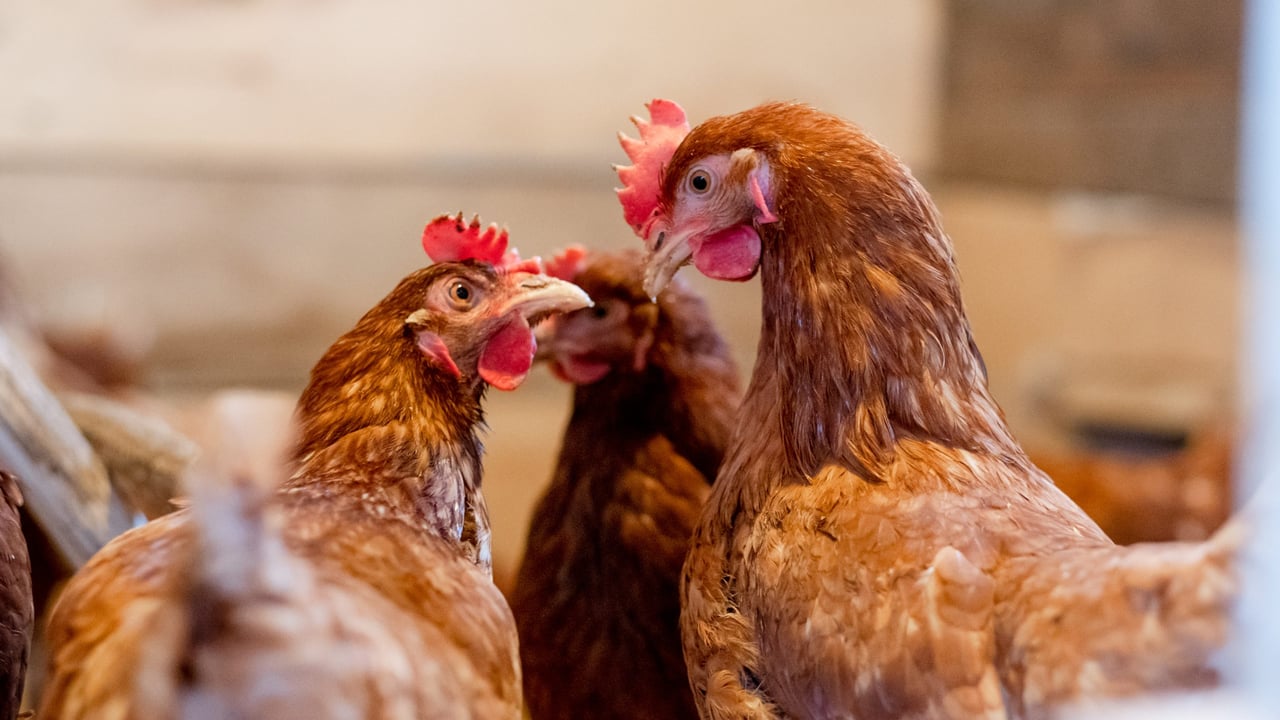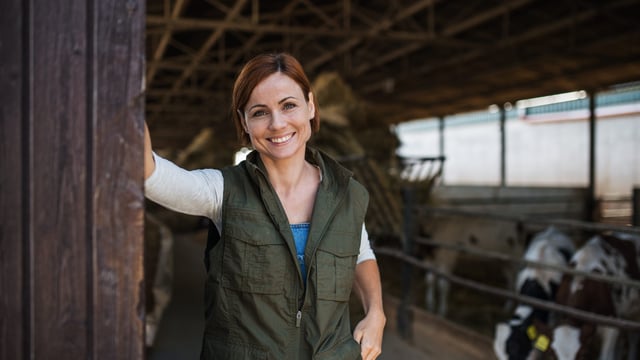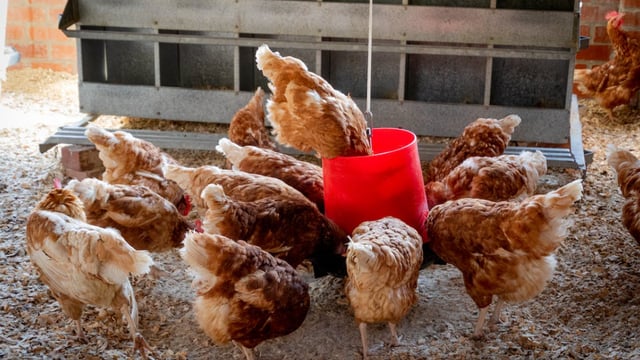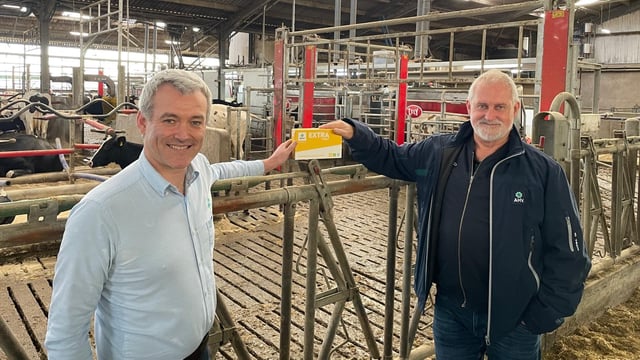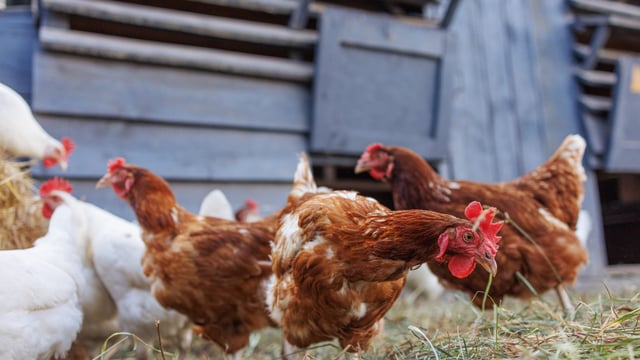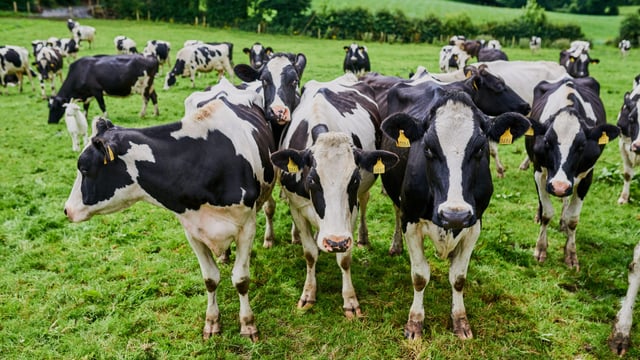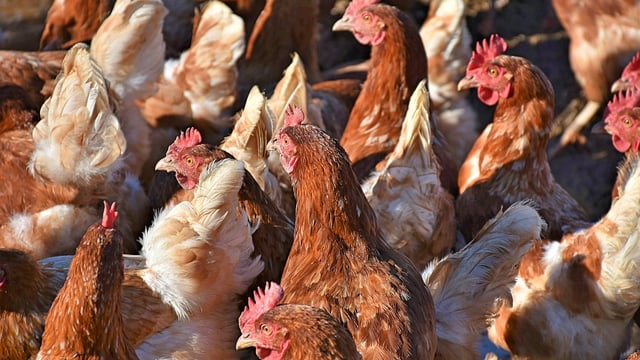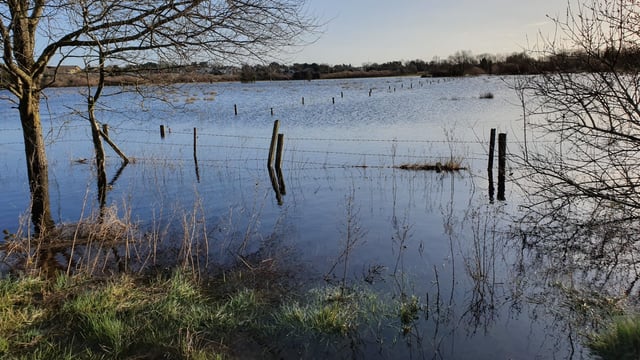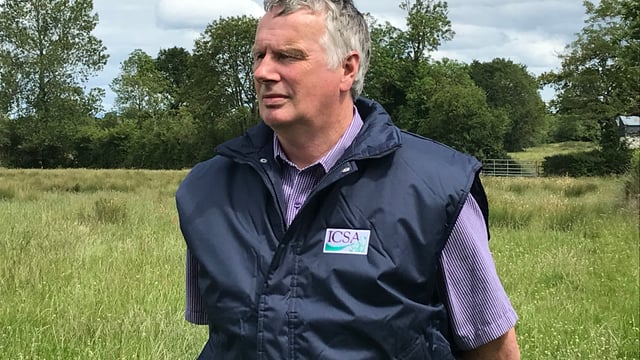Poultry and pig farmers recommended to avail of free flu vaccine
It is strongly recommended that people in regular close contact with poultry, waterfowl or pigs get vaccinated against seasonal human flu.
They can avail of the vaccine free of charge, the Health Service Executive (HSE) has said.
The seasonal human flu vaccine does not protect against avian influenza.
However, being vaccinated against seasonal human flu reduces the chance that a person could become infected with both the human flu and avian influenza at the same time, which could lead to changes in the virus allowing it to spread more easily between people.
Bird flu / avian influenza is a type of influenza that primarily affects wild birds and poultry. It can also occasionally infect some mammals and humans, the HSE said.
Highly pathogenic avian influenza (HPAI) is a type of avian influenza that can cause high levels of illness and deaths in birds.
The H5N1 HPAI virus is circulating in wild birds in Ireland.
"Of the many strains of HPAI viruses, the H5N1 virus is widely regarded as the most serious for both birds and humans," the HSE said.
"Since 2003, there have been nearly 1,000 human cases of H5N1, half of whom have died.
"It is very unusual for people to catch bird flu, but it can happen.
"Currently, it is hard to catch avian influenza from a bird or animal, and there is no evidence that it can be passed between people, but if the virus mutates (changes), this may happen in the future."
The HSE outlined that it is therefore important to prevent people from getting H5N1, since:
- It can, rarely, produce serious disease in people;
- Mixing of avian influenza and seasonal flu in a person could allow the virus to mutate and become better at spreading between people;
- If a person is infected with HPAI, it could be passed from people to Irish poultry flocks, leading to severe disease among birds.
No human cases of bird flu
Although avian influenza can be very contagious between birds, the HSE Health Protection Surveillance Centre (HPSC) and the European Centre for Disease Control advise that the risk to public health from the strain of avian influenza that is circulating is very low.
The HSE told Agriland: "No human cases of avian influenza have been notified to the HSE-HPSC. HPSC undertakes systematic surveillance of all types of influenza.
"Regional Public Health teams who manage incidents will ascertain if a person may have handled birds, what the circumstances were, and take appropriate action accordingly."
The HSE said it reiterates the advice of the Department of Agriculture, Food and the Marine (DAFM) for the public to not touch sick or dead wild birds.
"DAFM requests that all sick/dead wild birds be reported via the Avian Check app," the HSE said.
"While not all dead birds will be collected for testing, reporting is greatly appreciated and provides important information to support surveillance and risk assessment activities.
"In addition, if a person picks up or handles sick or dead wild birds that are found to be infected with avian influenza, they will be monitored for 10 days and may be offered antiviral medication and vaccination if they are considered to be at risk."
Housing order
A compulsory housing order for poultry and captive birds has been announced.
The new rules, which aim to protect poultry from bird flu, will come into effect on Monday, November 10.
This comes as the DAFM confirmed outbreaks of bird flu in a commercial turkey flock in Co. Meath, and also in a flock in Co. Carlow, this week.
Minister for Agriculture, Food and the Marine, Martin Heydon said that the introduction of the housing order will "further strengthen our national protection measures to help mitigate the ongoing risk".
The department has reminded all flock owners, regardless of the flock size, to:
- Comply fully with the housing and biosecurity regulations;
- Remain vigilant for sign of disease;
- Report any suspicions of avian influenza to their local regional veterinary office, or if outside business hours, to contact the National Disease Emergency Hotline on 01 492 8026.
Irish Farmers' Association (IFA) poultry chair, Nigel Sweetnam said there has to be a "laser-like focus" on biosecurity across the country.
“Flock owners must work to guarantee the tightest controls are in place," Sweetnam said.
Sweetnam said producers should go through their biosecurity protocols in detail and ensure there are no gaps anywhere.

